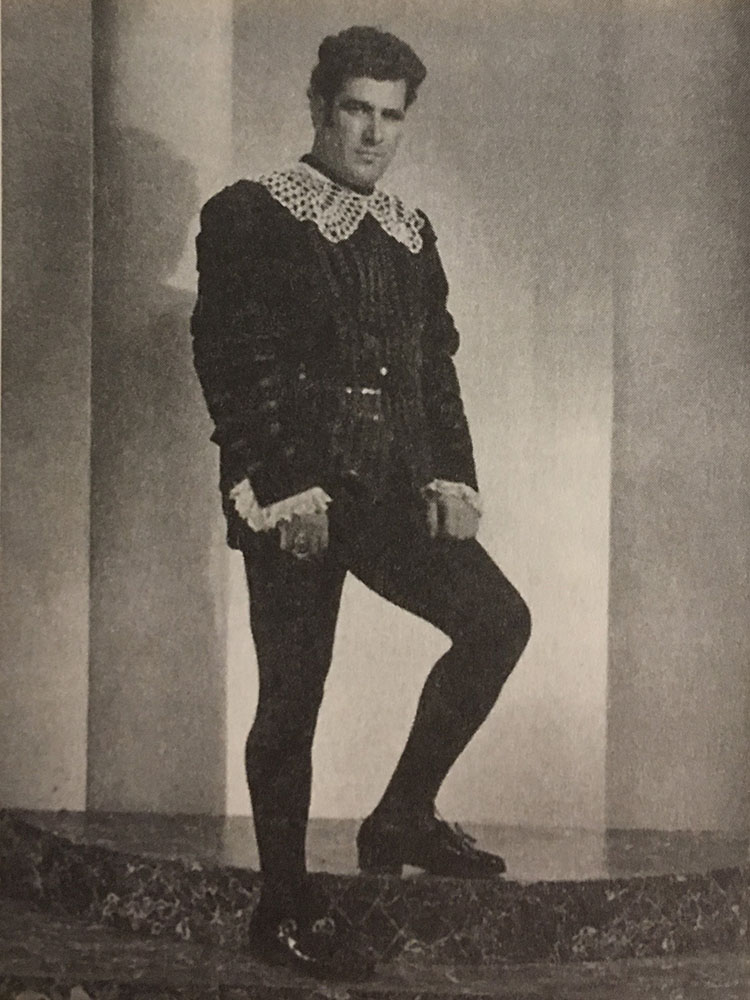Konstantinos Liontas (or Liondas, reflecting the Greek pronunciation) was born in Kozani 1903 and died in 1985 – either in
Greece or in Vienna, depending on sources. In 1929, he came to Hungary on a scholarship to study land surveying in Budapest, where
however he soon switched to his true love, music. He spent almost his entire career in Budapest, first at the Municipal, then at
the State Opera, where he was a lead tenor until
1950, with few guest appearances at the Vienna Staatsoper. He sang both lyrical and spinto roles, and had an excellent reputation
in Budapest. His best roles were Duca, Radamès and Calaf. He sang all his roles in Italian, and when he encored "La donna
è mobile" in Hungarian, he brought the house down.
Besides his work at the Budapest State Opera, he was also a translator at the Greek embassy, and a lecturer for modern Greek
language at the catholic Péter Pázmány University. In 1950, he returned to Greece and continued singing
until 1954 (for instance Canio in Athens), then he taught voice in Thessaloniki. Among his students were soprano Aleka
Drakopoulou and tenor Michael Theodore.
After the Soviets had crushed the democratic 1956 revolution in Hungary, Liontas went back to Budapest as cultural attaché
at the Greek embassy; after all, he spoke perfect Hungarian and knew the country intimately. After his diplomatic career, he
retired to Greece.
There are no commercial recordings of his voice, and none at all except the below mentioned, made well past his prime and yet
utterly impressive:
1) Nessun dorma (Turandot)
2) A te, o cara (Puritani)
3) E lucevan le stelle (Tosca)
4) Vesti la giubba (Pagliacci)
Reference 1 and picture source; reference 2: an earlier
Liontas biography written for this website by Nicholas Peppas and Juan Dzazópulos; reference 3: Kutsch & Riemens

